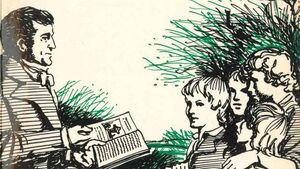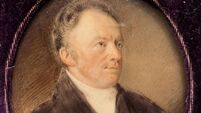Living Greener: Hedge schools have many lessons for us

The story of the hedge schools is one of the more astonishing in world history
WE tend to think of our indigenous ancestors as dumber or more superstitious than we are, but that evaporates the moment we read anything by, or about, Irish children centuries ago.
For centuries children were even educated in secret “hedge schools,” and yet had levels of education that few professors would have today.
Ireland had been the greatest centre of learning in the Middle Ages, as monks kept civilisation alive when mainland Europe fell to waves of barbarian invaders.
For a thousand years the monasteries and convents taught Irish children – boys and girls, noble and common – as well as students from across Europe. Under British rule, though, millions of Irish were evicted from their lands, starved and forbidden from giving their children an education.
Astonishingly, that didn’t stop children across Ireland from going to school. Teachers held classes in woods or in the corners of fields, teaching boys and girls alike, surrounded by hedges that hid them from passers-by.
Mary Fogarty, writing in the 1800s, remembered that 'the education they gave was good; they carried many of the scholars from the alphabet to Latin, Greek, mathematics and English literature'.
Latin and Greek were not merely their keys to education, but allowed them to communicate with others; in the 1600s Sir William Petty conversed in Latin with peasants living in Kerry, saying Latin fluency was “very frequent among the poorest Irish”.
The teachers themselves were often master poets; when they arrived, they often circulated a letter describing what they would teach, written in verse as proof of their skill.
When two hedge schoolmasters both settled in the same village in County Armagh and the town wasn’t big enough for both of them, they circulated satirical verses about one another, like a modern trash-talking rap battle, until one conceded and moved on.
The result of all this was that 'generations of visitors to Ireland described ostlers, cowherds, post boys, barefoot servants and other low people displaying classical erudition'.
A writer in 1776 said that he encountered a poor ragged boy was 'well acquainted with the best Latin poets,' while another in 1797 said that in the wild backwoods regions of Kerry, 'many may be met with who are all good Latin Scholars ... Greek is also taught in the more mountainous parts by some itinerant teachers'.
Another wrote in 1824 that 'amongst the peasantry, classical learning is not uncommon; and a tattered Ovid; or Virgil may be found even in the hands of common labourers'.
When William Makepeace Thackeray visited Cork in the 1840s he heard two barefoot boys discussing the Ptolemys.
Rev Alexander Ross, writing from Dungiven in 1814, said that ‘Even in the wildest districts it is not unusual to meet with good classical scholars,’ and another observer wrote in 1808 that most men he knew ‘in the humblest occupations; (like) broom-sellers, (and) coachmen” who knew Latin and even Greek.
A German traveller visiting Ireland in the 1840s, just before the Famine, wrote about the men of rural and very poor Co Kerry.
‘‘Even the cow-boys and the poor farmers' sons know Latin there,’ is a common saying.’ The poet Eoghan Rua O Suilleabhain was a farm labourer to the wealthy Nagle family of Fermoy. When a woman wished to write a letter to the master of the house, and he offered to help, but she wondered whether a common Irish farmhand could write. He responded by writing her four copies of the letter — in English, Latin, Ancient Greek and Irish.
Nor did they just learn the classics. A Dr Smith reported one man in poverty who knew ‘calculating the epacts, golden number, dominical number, the moon’s phases, and even eclipses...’.
Richard Lovell Edgeworth said that between the barefoot children of poor families and the sons of wealthy English families, it was usually the former who knew advanced mathematics.
The story of the hedge schools is one of the more astonishing in world history, demonstrating that a people who want to retain their culture and faith can do so even in the face of attempted extermination.
They didn’t have money or permission; they just picked up a book and started teaching children, and we can do the same.





